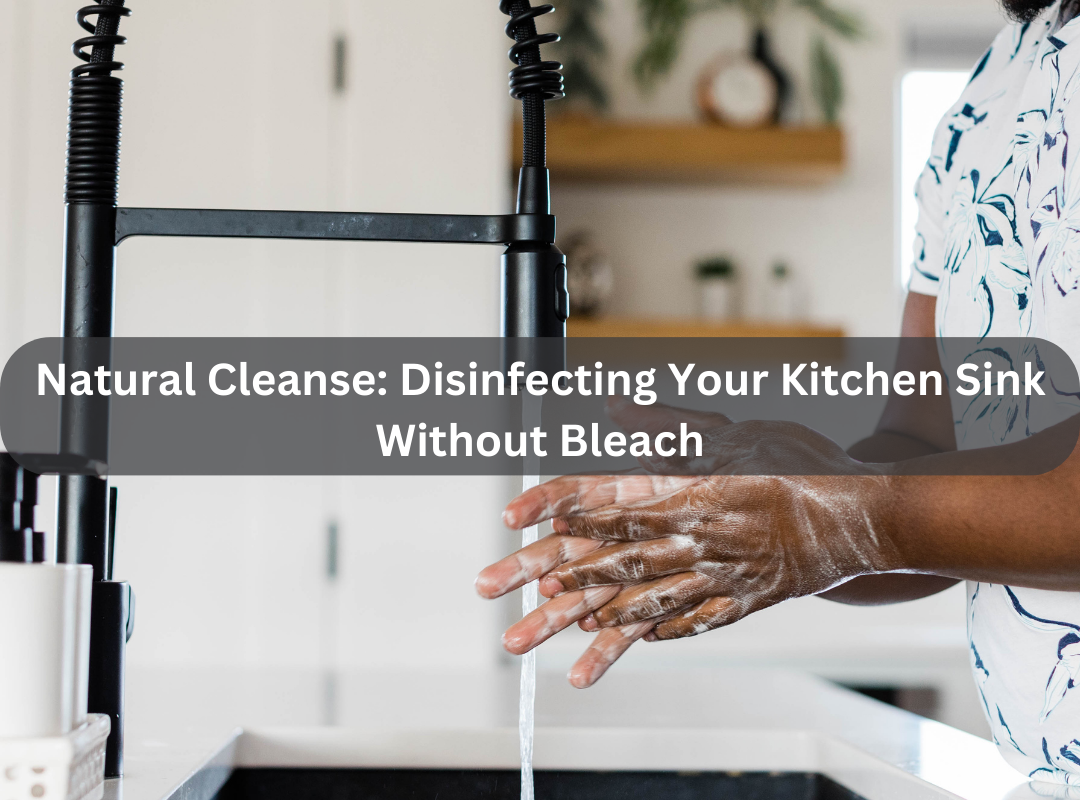Introduction For How To Disinfect Kitchen Sink Without Bleach
In the heart of your home, the kitchen sink stands as a hub of activity, witnessing the ebb and flow of culinary creations. Keeping this epicenter pristine is crucial, but not everyone wishes to resort to bleach for disinfection. Fear not, for a realm of natural alternatives awaits, promising a clean, germ-free environment without compromising your commitment to eco-friendly choices.
Join us on a journey where the sparkle of a disinfected kitchen sink is achieved without the harshness of bleach. Let’s explore the wonders of natural disinfectants that not only cleanse but do so with a touch of botanical elegance, turning your kitchen into a sanctuary of health and vitality.
Q1: How can I disinfect my kitchen sink without using bleach?
A1: Use white vinegar as a natural disinfectant for your kitchen sink.
Q2: How does white vinegar disinfect the sink?
A2: White vinegar has acetic acid, which has antimicrobial properties that can help kill bacteria and germs.
Q3: What is the process for disinfecting the sink with white vinegar?
A3: Mix equal parts of white vinegar and water, apply the solution to the sink surfaces, let it sit for 10-15 minutes, and then rinse thoroughly.
Q4: Can I use apple cider vinegar instead of white vinegar?
A4: While apple cider vinegar has some disinfectant properties, white vinegar is more effective due to its higher acetic acid content.
Q5: Are there other natural disinfectants for the kitchen sink?
A5: Yes, lemon juice and baking soda can be combined to create a paste for scrubbing and disinfecting the sink.
Q6: How do I use lemon juice and baking soda to disinfect the sink?
A6: Sprinkle baking soda in the sink, squeeze lemon juice over it, scrub with a brush or sponge, and then rinse thoroughly.
Q7: Can I use hydrogen peroxide to disinfect the sink?
A7: Yes, hydrogen peroxide is a good alternative. Pour it directly on the sink surfaces, let it sit for a few minutes, and then rinse.
Q8: How effective is rubbing alcohol for disinfecting the kitchen sink?
A8: Rubbing alcohol is effective. Apply it to the sink surfaces, let it sit briefly, and then wipe or rinse.
Q9: Can I use tea tree oil to disinfect the sink?
A9: Yes, tea tree oil has natural antibacterial properties. Mix a few drops with water or vinegar and apply to the sink surfaces.
Q10: Is it necessary to dilute essential oils for disinfecting the sink?
A10: Yes, always dilute essential oils with water or a carrier substance to avoid any damage to the sink surfaces.
Q11: What essential oils are good for disinfecting the kitchen sink?
A11: Tea tree oil, eucalyptus oil, and lavender oil are popular choices for their antimicrobial properties.
Q12: Can I use a commercial natural cleaner to disinfect the sink?
A12: Yes, there are natural disinfectant cleaners available that use plant-based ingredients. Follow the instructions on the product.
Q13: How often should I disinfect my kitchen sink using natural methods?
A13: Disinfect your sink at least once a week or more frequently if needed, especially after handling raw meat or food scraps.
Q14: Can I combine different natural disinfectants for a more potent solution?
A14: Yes, combining white vinegar with essential oils or hydrogen peroxide can enhance the disinfecting properties of the solution.
Q15: Are there any surfaces I should avoid using certain natural disinfectants on?
A15: Avoid using acidic solutions like vinegar on natural stone surfaces, as they may damage the stone. Check manufacturer recommendations.
Q16: Can I use natural disinfectants on a stainless steel sink?
A16: Yes, natural disinfectants are safe for stainless steel sinks and can effectively kill bacteria without causing damage.
Q17: Can I use natural disinfectants for colored sinks?
A17: Yes, natural disinfectants are generally safe for colored sinks, but it’s advisable to test in a small, inconspicuous area first.
Q18: How long should I let the natural disinfectant sit on the sink surfaces?
A18: Allow the solution to sit for 10-15 minutes to effectively disinfect, then rinse thoroughly with water.
Q19: Can I use natural disinfectants for both the sink basin and the faucet?
A19: Yes, natural disinfectants can be used on both the sink basin and the faucet to ensure comprehensive sanitation.
Q20: Is it advisable to wear gloves when using natural disinfectants?
A20: While natural disinfectants are generally safe, wearing gloves is advisable, especially if you have sensitive skin or cuts on your hands.
Conclusion On How To Disinfect Kitchen Sink Without Bleach
As our exploration into non-bleach methods for disinfecting the kitchen sink draws to a close, envision a space where cleanliness and sustainability coexist in perfect harmony. The use of natural alternatives like white vinegar, lemon juice, or essential oils has not only banished germs but has also embraced the beauty of a green and chemical-free approach.
May your kitchen sink become a testament to the power of nature, where every scrub and rinse is a step toward a healthier home. Here’s to the allure of a disinfected kitchen, achieved with the gentleness of natural remedies, making your culinary haven not just clean, but refreshingly vibrant.




